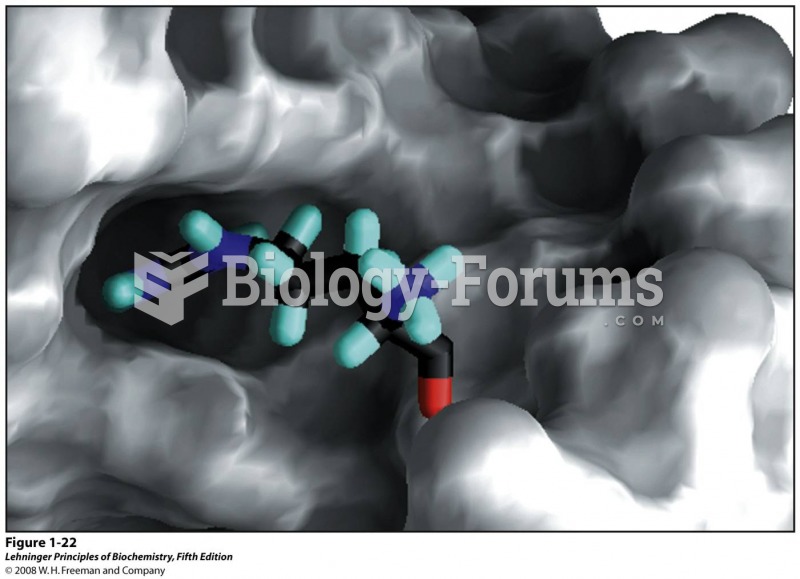|
|
|
Eat fiber! A diet high in fiber can help lower cholesterol levels by as much as 10%.
Egg cells are about the size of a grain of sand. They are formed inside of a female's ovaries before she is even born.
About 80% of major fungal systemic infections are due to Candida albicans. Another form, Candida peritonitis, occurs most often in postoperative patients. A rare disease, Candida meningitis, may follow leukemia, kidney transplant, other immunosuppressed factors, or when suffering from Candida septicemia.
To maintain good kidney function, you should drink at least 3 quarts of water daily. Water dilutes urine and helps prevent concentrations of salts and minerals that can lead to kidney stone formation. Chronic dehydration is a major contributor to the development of kidney stones.
Between 1999 and 2012, American adults with high total cholesterol decreased from 18.3% to 12.9%





